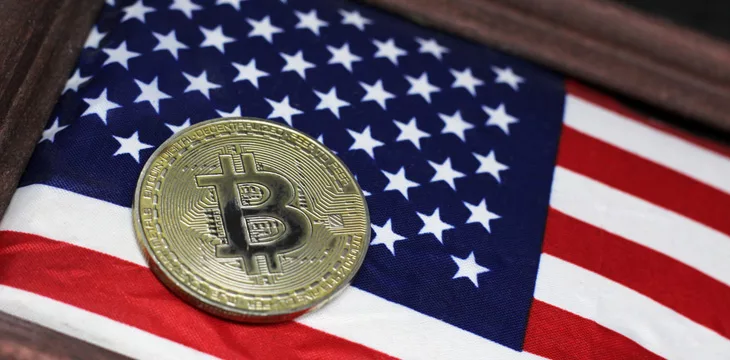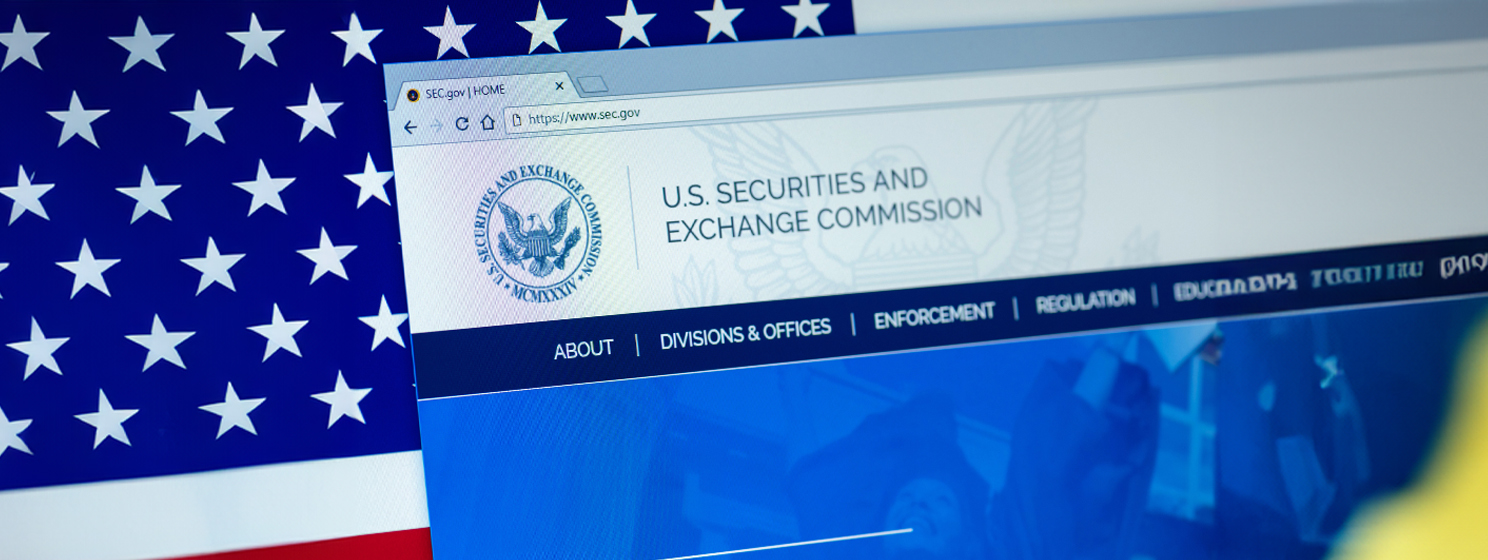
|
Getting your Trinity Audio player ready... |
A prominent U.S. senator is crafting legislation the digital asset sector is salivating over, just as ‘crypto’ campaign cash appears to be having an impact ahead of November’s elections.
On June 26, Politico reported that Sen. J.D. Vance (R-OH) has been circulating the draft of a digital assets bill that he hopes to introduce in July. Vance’s bill will reportedly give ‘crypto’ operators even more latitude than the Financial Innovation and Technology for the 21st Century Act (FIT21) approved by the House of Representatives last month.
FIT21 envisioned handing the bulk of ‘crypto’ oversight to the Commodity Futures Trading Commission (CFTC) rather than the Securities and Exchange Commission (SEC). The latter not only has greater resources than the CFTC but also a seemingly less tolerant view of the sector’s excesses.
And yet Vance’s draft bill reportedly takes “a more industry-friendly approach” than FIT21, which is saying something, given that FIT21’s passage set champagne corks-a-poppin’ within the halls of U.S. digital asset firms. Vance’s bill will reportedly “take a simpler approach to determining which digital assets the SEC would oversee versus the CFTC.”
That said, not everyone appears pleased with Vance’s plan. Politico quoted an unidentified lobbyist calling Vance’s bill “much, much better” than FIT21, but claimed crypto firms “don’t want to start over” given the limited timeline for advancing bills in an election-shortened congressional calendar. The lobbyist added that Vance’s “more partisan” bill could undo much of the bipartisan support that FIT21 enjoyed in the House.
Vance, who serves on the Senate Banking Committee, has a ‘strongly supports’ recommendation from Stand with Crypto, a group formed by the Coinbase (NASDAQ: COIN) exchange to promote ‘crypto-friendly’ politicians.
Vance is also a leading contender to be named Donald Trump’s vice-presidential running mate sometime over the next few weeks. After years of labeling digital assets as a scam, recent months have seen Trump seriously lean into all things ‘crypto’ as he courts voters who might prove the difference in what is expected to be a very close election.
Trump continues to double-down on his ‘crypto’ embrace, with Axios recently reporting that Trump was in talks to speak at the Bitcoin 2024 convention in Nashville in late-July, just one week after the Republican National Convention in Milwaukee.
Crypto bros spreading misinformation? Surely you jest…
In a June 25 interview with Bloomberg’s Annmarie Hordern, SEC Chairman Gary Gensler was asked about the growing narrative that the SEC’s numerous legal actions targeting ‘crypto’ operators may be tilting the outcome of November’s U.S. presidential election away from incumbent Joe Biden and toward Trump.
Gensler declined to take Hordern’s bait, saying he has a simple rule about not discussing election topics. Hordern didn’t let Gensler off the hook, noting that billionaire Mark Cuban has also warned that Gensler’s crypto prosecutions risk putting Trump back in the Oval Office. Gensler again demurred, but others weren’t as prepared to keep their opinions to themselves.
Reacting to this interview, Ripple Labs CEO Brad Garlinghouse tweeted that Gensler will “cause Biden to lose the election.” Garlinghouse also took exception to Gensler’s comments that ‘crypto’ is a sector in which “the public has really been harmed.”
Twisting the knife, Gensler said ‘crypto’ was “a field where the leading lights from a couple of years ago are either in jail, about to go to jail, or awaiting extradition.” Gensler added that there remains “significant noncompliance” in the operators who have yet to be brought to justice.
Garlinghouse called Gensler’s comments “slander” and “absolute nonsense.” Garlinghouse, whose company is locked in its own high-priced battle with the SEC, disingenuously claimed that Gensler “wasn’t even invited to the [Department of Justice] announcement about Binance.”
In reality, the SEC didn’t send any reps to that November 2023 settlement press conference because the SEC was the one U.S. agency that has yet to reach a deal with the Binance exchange. Garlinghouse knows this, of course, and yet is willfully amplifying misinformation because it suits the ‘martyr’ narrative that this sector has so willingly embraced.
Garlinghouse’s disingenuous bid to appeal to low-information voters speaks volumes about crypto operators’ willingness to manipulate reality for self-serving purposes. Just as many of the same crypto bros who cast a cynical eye on Biden’s recent ‘pivot’ to a more tolerant stance toward digital assets have found it easy to dismiss Trump’s long history of anti-crypto comments because it’s the way they want to vote regardless, so here’s their justification.
A Fairshake of the head
Meanwhile, crypto bigwigs’ election-influencing efforts appear to be having some impact, at least according to the bigwigs. Two primary elections this week—a Republican Senate race in Utah and a Democratic House race in New York—were won by candidates backed by around $7 million in spending by crypto-affiliated political action committees.
In Utah, the Defend American Jobs PAC spent nearly $5 million boosting the candidacy of John Curtis while targeting negative ads at his rival Trent Staggs. Curtis, a pro-crypto candidate, is looking to assume the Senate seat currently held by the retiring Mitt Romney. It’s a safe Republican seat, meaning Curtis will almost certainly crush Democratic candidate Caroline Gleich in November.
In New York, Rep. Jamaal Bowman (D-NY) went down to defeat against primary challenger George Latimer, thanks in part to $2 million in spending by the Fairshake PAC. (As with Defend American Jobs, the bulk of the $160 million that Fairshake has raised to date has come from Coinbase, Ripple and venture capitalists Andreessen Horowitz.)
Fairshake spokesperson Josh Vlasto claimed Bowman “fought against setting clear rules of the road for the crypto and blockchain industry, and tonight he’s looking for a new job.” And yet Fairshake’s anti-Bowman ads didn’t even mention crypto or blockchain, focusing instead on Bowman’s penchant for “pushing dangerous conspiracy theories,” including those linked with antisemitism.
For all Fairshake’s bluster, their anti-Bowman ad garnered a mere 600-odd views in the 12 days it was on YouTube. Bowman’s defeat had far more to do with the nearly $15 million spent on negative ads by the American Israel Public Affairs Committee (AIPAC). Regardless, the collective ad push made this primary campaign the most expensive in U.S. history and not everyone is happy with that.
When Bowman ally Rep. Alexandria Ocasio-Cortez (D-NY) called the record spending by special interests “disgusting and abnormal,” Tyler Winklevoss, who along with his brother Cameron run the Gemini digital asset platform, responded by saying “politicians everywhere need to understand that this is what happens when you pick a fight with the crypto army.” Cameron also chimed in with his impression of the least cool Breakfast Club character.
Such Ozymandian statements are typical of crypto bros who harbor authoritarian sympathies and typically cast ‘have fun staying poor’ scorn on those who fail to agree with them. But if they truly believed how beneficial their allegedly revolutionary financial products are to these unwashed masses, you’d think they’d be willing to actually mention ‘crypto’ in their attack ads.
And finally, ‘crypto’ merited not a single mention in the first debate between Biden and Trump. Seems Fairshake needs to buy some ads on CNN.
Watch: Digital currency regulation and the role of BSV blockchain

 11-21-2024
11-21-2024


